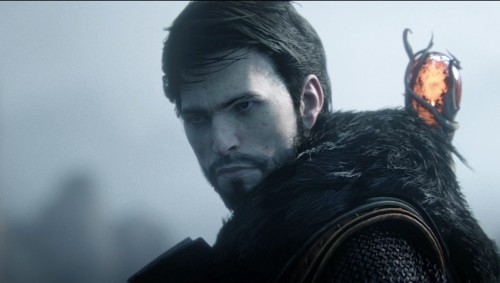 |
| Remember this, anybody? |
Purely from a storytelling perspective, when you define all the characters for the player, it's easier to develop a stronger, tighter narrative. You don't have to consider questions like "oh, but what if the player chose to make his character this." You don't have to worry about whether or not the story is logical with what the player has imagined his character to be. You don't need to concern yourself with consistency between the player and the game. The game has already defined everything, including the player, their character, and their role in the story.
Limiting player choice in creating their characters can thus, arguably, be what strengthens the story of a particular game. Final Fantasy 7, for example, forces you to play Cloud Strife. But is the game any weaker because you're not allowed to create your own character? Not really - in fact, given the story of Final Fantasy 7, using any other character besides the predefined Cloud Strife wouldn't make sense. Using a more recent example, the Mass Effect series - while allowing you to change your class and some superificial characteristics of your character - still forces you to play (a somewhat predefined) Shephard. And the narrative is strengthened, because of this. Can you imagine a Mass Effect game without Commander Shepherd at the helm?
 |
| Commander Shephard |
Why then, when I look back on the last couple of years and almost all of my favorite RPGs have included character generation as one of its features? Dragon Age - Origins, Star Wars - Knights of the Old Republic 2, Neverwinter Nights, The Elder Scrolls - Oblivion. The list goes on. And for me, the answer to my own question is that the stories in these games aren't about somebody else. They're about me.
 | |||
| How relatable is he? + Carries a giant sword - Is an Amnesiac - Is broody and emo - Has ridiculous hair - Carries a giant sword |
Does it take more effort? Yes, certainly. Is it worth the effort? That depends on the story you're trying to tell.
One of the things that was heavily decried on the Dragon Age 2 forums was how much character generation was being stripped down. Dragon Age - Origins had featured such a strong character generation system, allowing you to choose race, gender, class, starting statistics and skills. Apart from that, they also allowed you to choose between six different origin stories. Dragon Age 2, on the other hand, allowed you to choose your gender and your class. That's it. They even forced you to play a character named Hawke, a la Mass Effect.
The end result was that the Dragon Age series changed from being a personal story for the player ... to Hawke's story. This by itself is not necessarily a bad thing (see my review for the full assortment of things gone awry in DA2). Still, it was a bit disappointing to know that I would not be playing my own character in the second Dragon Age, after the first experience was so captivating.
I hope.

No comments:
Post a Comment